Solve your sleep problems
There’s no substitute for a good night of sleep. If you find yourself dealing with the same sleep problems, it’s time to make some changes. Here’s what you can do for a more restful sleep, depending on your sleep habits.
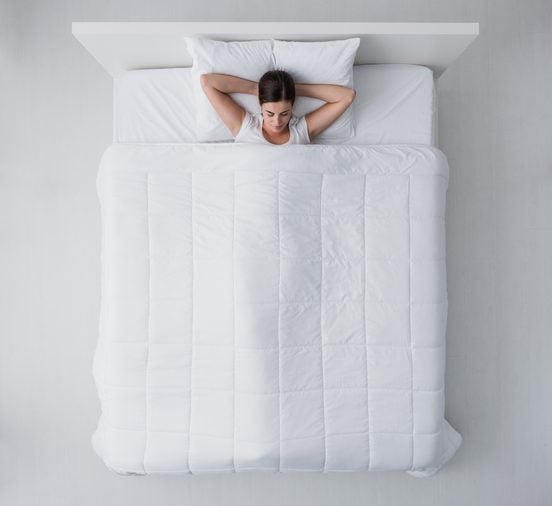
You can’t drift off: Clean up your sleep
Your sleep habits can reveal important signs about your health, so how do you know when you have a sleep problem? About one-third of adults suffer insomnia during their lifetime, explains Shanon Makekau, MD, the Chief of Pulmonology & Sleep at Kaiser Permanente Moanalua Medical Center; 10 to 15 percent suffer from chronic insomnia. Dr. Makekau points out that insomnia can range from trouble drifting off to waking up during the night and being unable to fall back asleep.
If this sounds like you, Dr. Makekau says certain medications or substances—from caffeine to nicotine—and stress could be preventing you from rest, among other issues. “Often insomnia will improve with simple changes in sleep hygiene along with overall regression of life stressors,” she says. “If you have an extended bout of insomnia that doesn’t go away after you change your habits, it’s important to talk to your physician because insomnia could be a sign of an underlying medical issue.” What is sleep hygiene? Check out this guide to “cleaning up” your sleep.
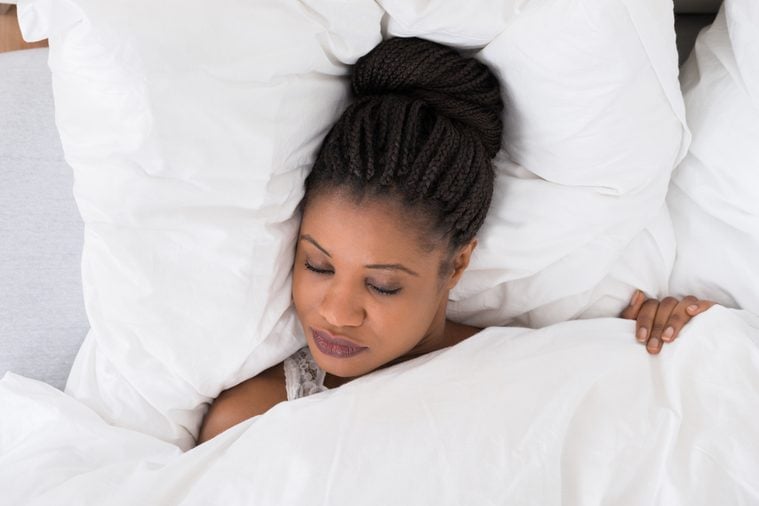
You’re exhausted when you wake up: Your diet could be to blame
Though there are plenty of causes for feeling exhausted even after you’ve slept through the night. Steven R. Olmos, DDS, the founder of TMJ & Sleep Therapy Centre, suggests analyzing what you eat before bedtime. “Having a meal low in fiber but high in saturated fats and sugar has been shown to produce more arousals or awakenings during sleep, which means that you will be more tired when you wake,” he explains. Sleep apnea might also be the culprit. Check out these 30 healthy eating tips that could change your life—and help you sleep.
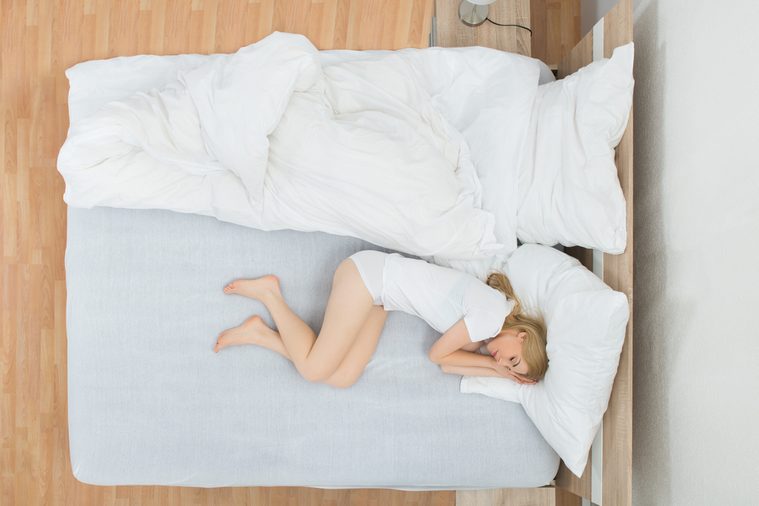
You’re afraid you won’t nod off: Get up for a bit
Don’t stew in bed—get up, get out of your bedroom, and do something non-stimulating. It might seem counterproductive, but David Greuner, MD, says it breaks a bad cycle. “Most people make the mistake of switching positions until they eventually fall asleep—this is actually wrong,” Dr. Greuner explains. “Many sleep experts say the best thing to do is just get up, leave your room, and do something else that doesn’t involve sleep.” Eventually, you’ll become tired enough to doze off easily, he says. If that doesn’t help, try these 11 weird tricks that can help you fall asleep.
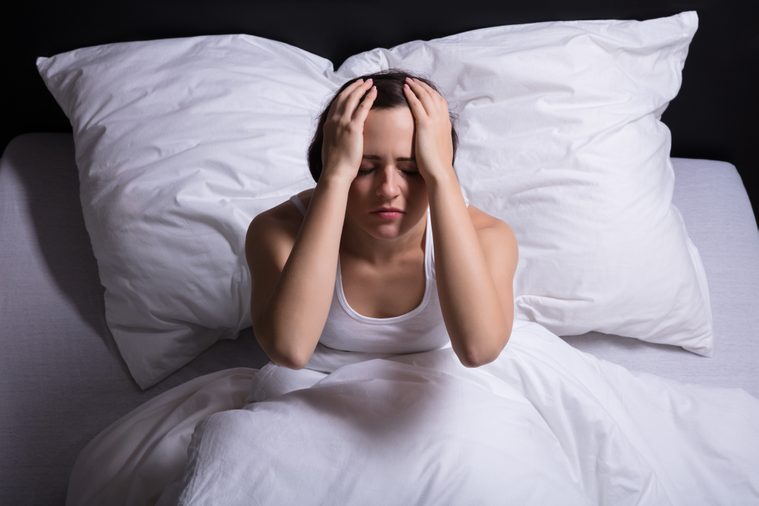
You wake up at 3 a.m.: Give up the nightcap
A late drink might help you fall asleep, but it will wake you later, warns Daniel Slaughter, MD. He recommends cutting yourself off at least two hours before you hit the sack. “Alcohol prior to bedtime will tend to generate insomnia in the middle of the night,” he explains, and it will be tough to fall back asleep. “This will reduce the amount of REM sleep,” he says—that’s the restorative part of your sleep cycle. (Here’s how to make sure you sleep through the night.)
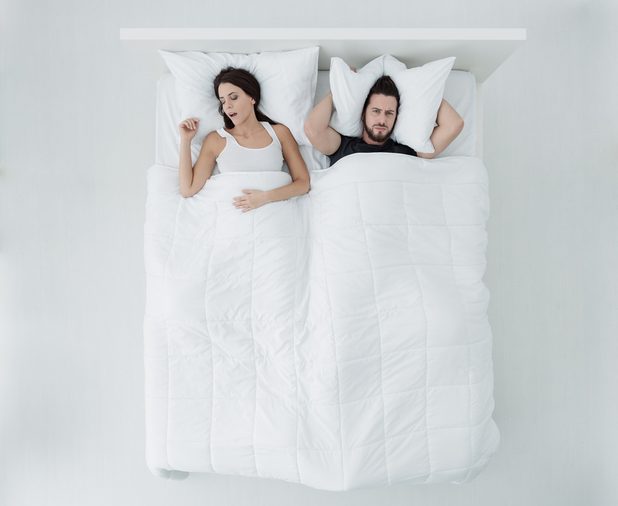
You snore: See a doctor
Respiratory problems tied to sleep, including snoring, gasping for air, and interrupted breathing might mean you’re struggling with sleep apnea, says Dr. Makekau. The condition can cause daytime sleepiness, a sore or dry throat, morning headaches, depression, and memory trouble. Being overweight or having a family history of sleep apnea ups your risk, explains Dr. Makekau: It’s important to get checked out ASAP because the condition can leave you more susceptible to weight gain, heart disease, and type 2 diabetes. Supplement your doctor’s recommendations with these home remedies for sleep apnea.
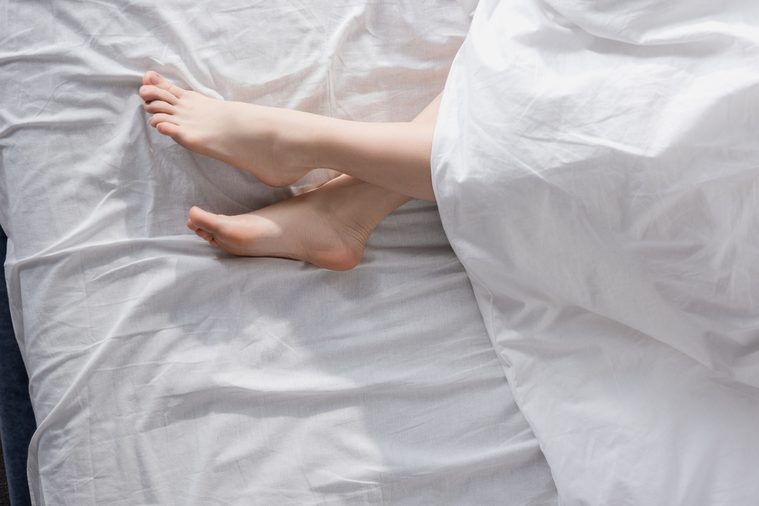
Your legs have a life of their own: Plan an evening walk
Just as you’re drifting off you get a weird itchy or burning sensation in your legs, and you have an uncontrollable urge to move them. That could be restless legs syndrome, says Dr. Makekau. “Usually stretching, walking it off, or moving about can alleviate the discomfort,” she notes. “Other home remedies include avoiding alcohol and caffeine in the evening, taking a warm bath at night, and gentle massage.” You may want to talk with your doctor about possible nutritional deficiencies—sometimes the symptoms can be a sign you’re low in iron, vitamin B12, or folate, according to the National Sleep Foundation.
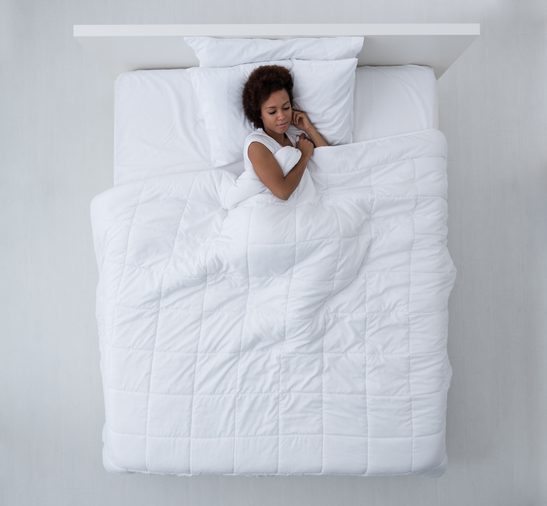
You problem-solve in bed: Learn to relax
If your mind won’t shut down at night, stress could be getting the better of you, says Dr. Makekau. “Set a timer an hour before bedtime to step away from the screen and put down the phone. Free your mind of persistent worries by jotting down your stresses or what you forgot to do that day,” she shares. “Engage in stress-reducing activities only—a warm bath, yoga, meditation, or listening to relaxing music—to calm your body and mind and prepare your brain for bed. By the time you actually go to sleep, you’ll be that much closer to a peaceful slumber.” Try some of these mini-meditations to banish stress from your brain.
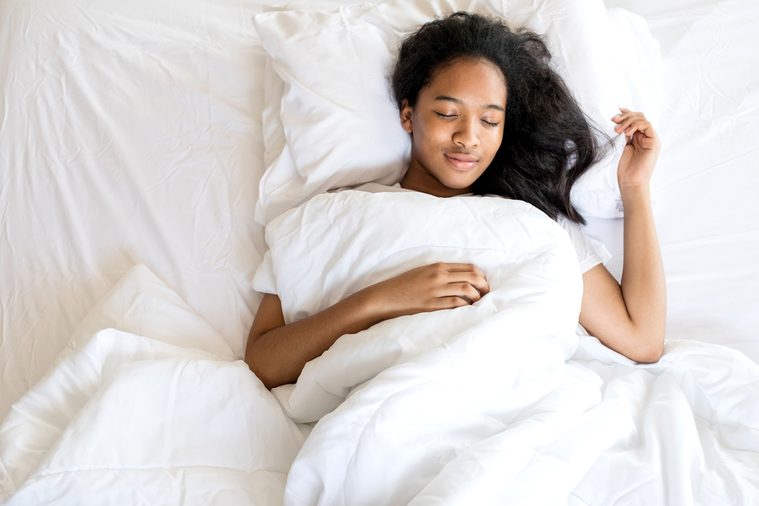
Eight hours is never enough: Focus on quality
“Adults should get between seven and nine hours of sleep per night regularly in order to feel reset,” says Dr. Makekau.” As important as it is to log those hours, sleep quality is just as important as length time. Sleep should be continuous and uninterrupted, allowing you to experience REM and NREM—rapid eye movement and non-rapid eye movement—sleep states to feel the full restorative benefits of a good night’s rest,” she explains. (Do you really need eight hours of sleep a night?)
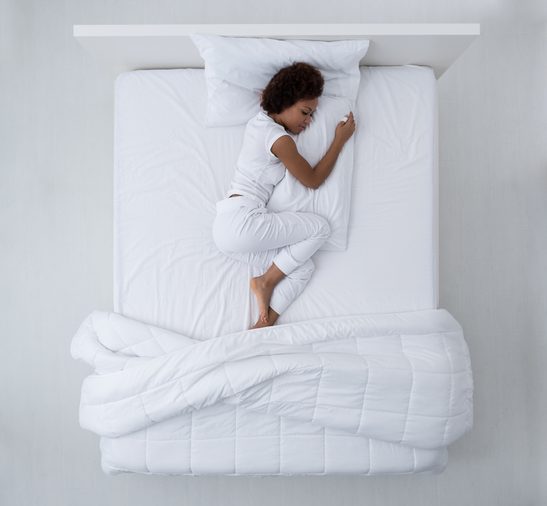
You hit “snooze” 20 times: You need a sleep routine
Try to pick a time when you can wake up and get out of bed with the minimum amount of drama, advises chiropractor Alex Tauberg. “The body’s natural circadian rhythm is such that you can train your body to wake up around the same time every day,” Dr. Tauberg says. “This is a habit you have a lot of control over. Try to stay consistent with when you are getting up, even on the weekends.” This may mean making sure your head hits the pillow early enough (even on weekends) to get enough shuteye. “Continuing to change the time you wake up in the morning can have negative effects on your sleep cycle,” he says. Take your cue from these six things the bedrooms of sound sleepers have in common.
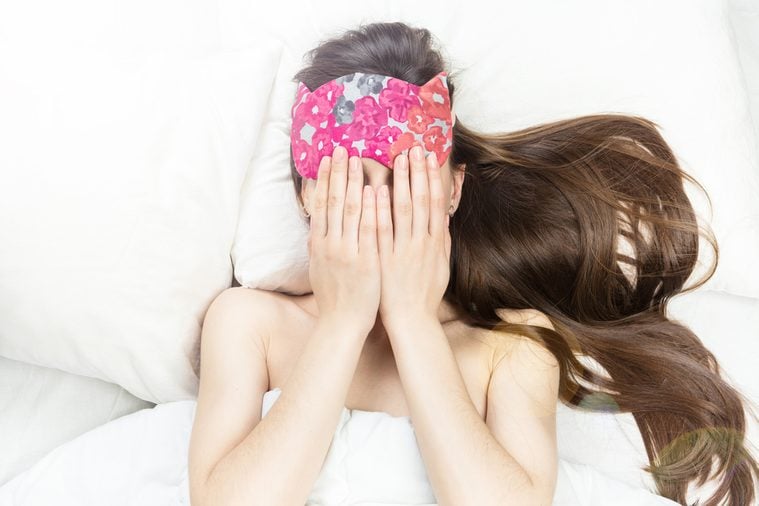
You’re always waking up to pee: Get a checkup
“While this may be due to you drinking too much water before bed, it can also have other health-related meanings,” warns Dr. Tauberg. “Have yourself evaluated by your doctor. You may be experiencing signs of diabetes or possible prostate enlargement.” Before you jump into bed tonight, check out these helpful tips from sleep doctors for improving your slumber.

